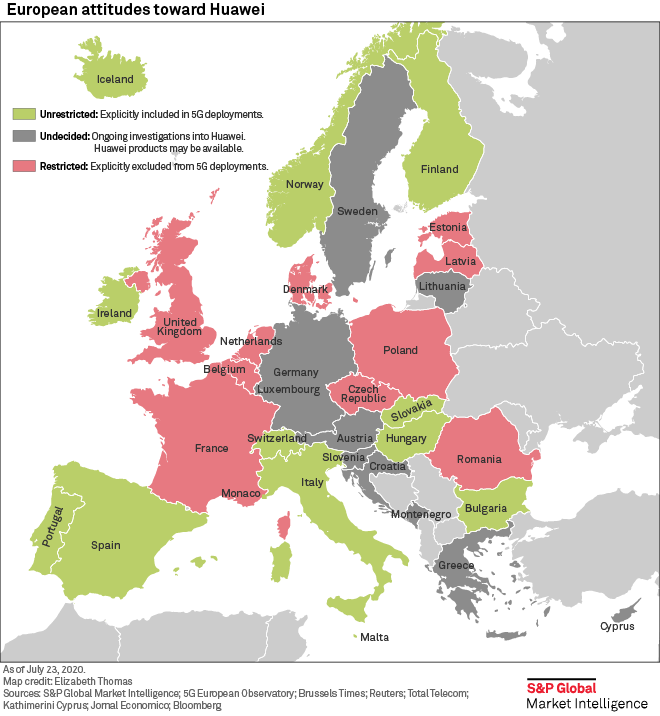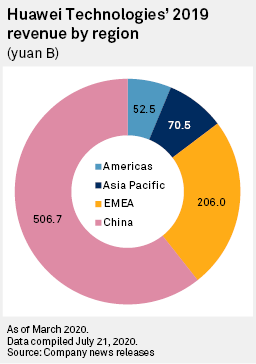Over a year since the European Commission instructed countries in the region to review and strengthen the security of their mobile networks, data compiled by S&P Global Market Intelligence shows a patchwork of approaches.
Amid calls from the U.S. for countries to ban Chinese telecoms equipment supplier Huawei Technologies Co. Ltd., the EC issued a non-binding recommendation March 26, 2019, for member states to "take concrete actions to assess cybersecurity risks of 5G networks and to strengthen risk mitigation measures." Since then, the EU has created a "toolbox" for 5G security, aimed at ensuring a "coordinated approach" to next-generation wireless network rollouts.
While telecoms operators in the bloc have called for clarity on government policies towards Huawei, the region is still highly divided, with almost an equal number of countries excluding and including the Chinese company from 5G rollouts.

The majority of EU member states have begun phasing out unnamed "high-risk" 5G equipment suppliers from core parts of the mobile data network, an EU official announced July 24. While the region lacks a "harmonious" approach to 5G security, it does not at this stage wish to "name and shame" the countries that have yet to identify so-called high-risk vendors, the official said.
The bloc's goal is to implement a certification scheme to freeze out suppliers deemed a security threat and to legislate on the matter, according to a spokesperson for EU cybersecurity agency ENISA.
In the meantime, countries and businesses are taking it upon themselves to sever ties with Huawei in anticipation of restrictions. France's decision to place a de-facto ban on Huawei by granting local cell carriers shorter, non-renewable licenses on its 5G kit could signal another means of impeding the firm's local presence in the absence of legislation.

The EU said looming bans can be identified by the supply chain actions taken by local network operators in expectation of potential restrictions. In July, Telecom Italia SpA blocked Huawei from participating in an equipment tender for its planned 5G core network in Italy and Brazil, Germany’s Deutsche Telekom AG chose Ericsson to supply kit for its 5G radio access network, while French carrier Orange SA previously picked Nokia to do the same in Slovakia.
Losing access to European markets could derail Huawei's position as a global leader in telecoms equipment. The region was Huawei's second-largest market in 2019 and is home to alternative equipment suppliers Nokia Corp. and Ericsson.



